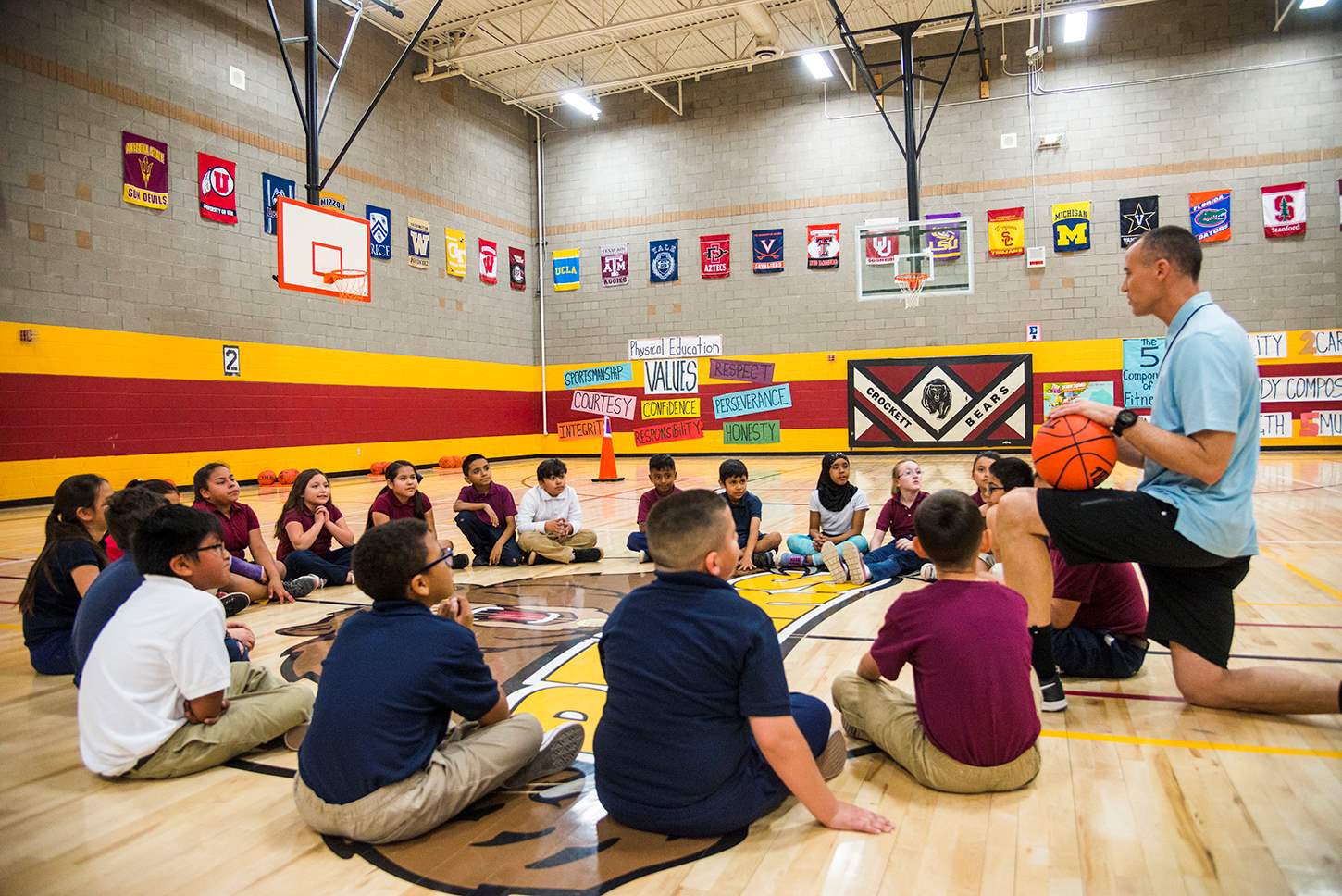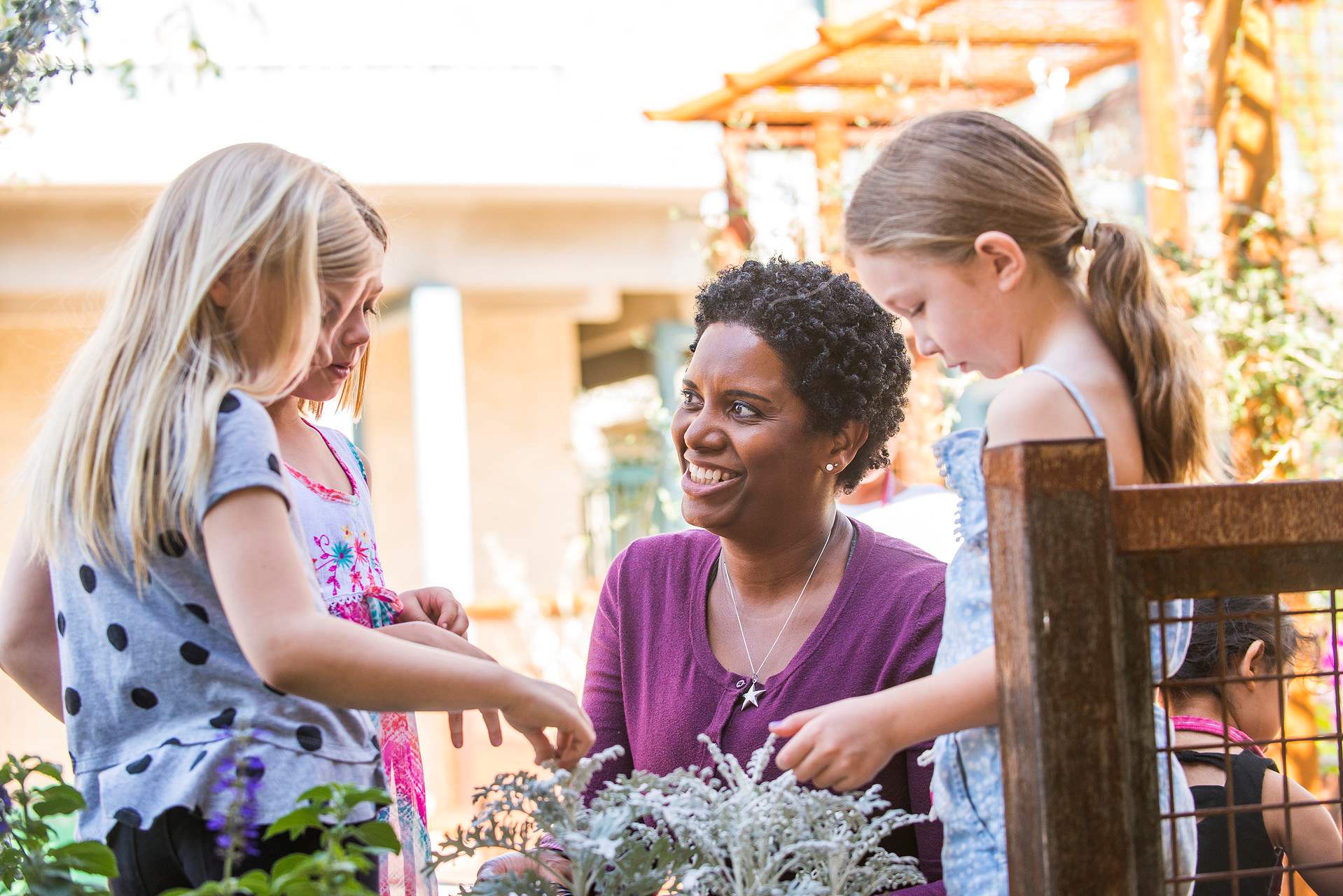InClass
Show your kids you care during the first weeks of school. Nancy Uxa, principal of Laird Elementary School in the Tempe Elementary School District, oversees a K-8 campus where 100 percent of the students qualify for free breakfast and lunch.Kids come from homes where parents are unemployed — or spen
Aug 23, 2018
Show your kids you care during the first weeks of school.
Nancy Uxa, principal of Laird Elementary School in the Tempe Elementary School District, oversees a K-8 campus where 100 percent of the students qualify for free breakfast and lunch.
Kids come from homes where parents are unemployed — or spend all their time working. From homes where parents might want to help with academics but have had little schooling themselves. Or from homes where parents hesitate to be too encouraging because they had a terrible time in school.
But Uxa knows there is a universal answer to the myriad of challenges her students bring to school: show kids they are cared about as individuals.
While Laird teachers decorated bulletin boards, created seating charts, and finished their classrooms the week before school started, Uxa challenged them to think of ways to show students from day one that their school is a place of care and safety.
Uxa, who struggled herself in elementary school but ultimately went on to earn a doctorate, recalls the expressions of care from her own teachers that helped her persevere.
“I had teachers in a few classes that I truly felt cared about me,” she says. “My fourth grade teacher had very high expectations and she expressed to me that she believed in me, therefore I worked very hard for her.”
“In seventh grade, I had a teacher who played the guitar and I was intrigued by her musical skills. So she stayed after school and taught me to play.”
Relationships Along with Rules
Increasingly, schools around Arizona are focusing more on relationship building and social skills — and not just rules and routines — during the first few weeks of school. Systems like Conscious Discipline, which blends brain science with problem-solving and communications skills, and trauma informed teaching practices, which take into account outside difficulties students experience, are used to help troubled kids work through their problems so they are ready for academics.
Caitlin Klem is a fan of Conscious Discipline, as well as giving kids cheery smiles and reliable routines starting from the second the they enter her classroom. Klem teaches kindergarten at Mountain View Elementary School in the Humboldt Unified School District.
Despite her students’ young age, Klem’s goal is to create a team of learners who grow “emotionally, both as individuals as well as members of a community” throughout the school year.”
Erica Davis, who teaches senior English and AP literature at Basha High School in the Chandler Unified School District, has similar goals, even though her students are at the end of their K-12 school experience.
On day one, Davis has students take an online survey about their learning styles and personal interests. They also set personal goals and post them on a vision board. The idea is that classmates throughout the year will hold them accountable and help them achieve their goals.
Davis, who was a 2018 Ambassador of Excellence for the Arizona Educational Foundation, also delays formal grading until students have practiced skills in her class. Instead, she uses formative assessments at the start so she can encourage growth from kids’ personal starting points.
“When my students realize that I recognize that they are people and not just student drones, they respond by giving me as much effort as I’ve given them,” she said.
Candy and Birthday Celebrations Help, Too
From greeting every student personally at the door to celebrating birthdays, Carol Anne Weech, a U.S. government teacher at Pima High School, and 2013 Graham County Rural Teacher of the Year, does all she can to develop connections with the juniors and seniors she teaches.
“Our kids have some crazy situations at home, as most schools know is true with their student populations, and the least I can do is provide a tiny island of stability for those who have none,” she says. “I’ll ask about something unique to them, compliment a haircut, share a joke, or make some kind of connection so they know I’m aware of them individually.”
Weech also celebrates birthdays by giving students candy bars, and from time to time rewards classroom achievements with candy. The mini parties keep her classes relaxed and positive, she says.
Uxa, meanwhile, cautions new teachers not to confuse connection with friendship.
“Kids do not need more friends,” she says. “They need adults that have high expectations and help students to know and understand they are capable of reaching these expectations.”






